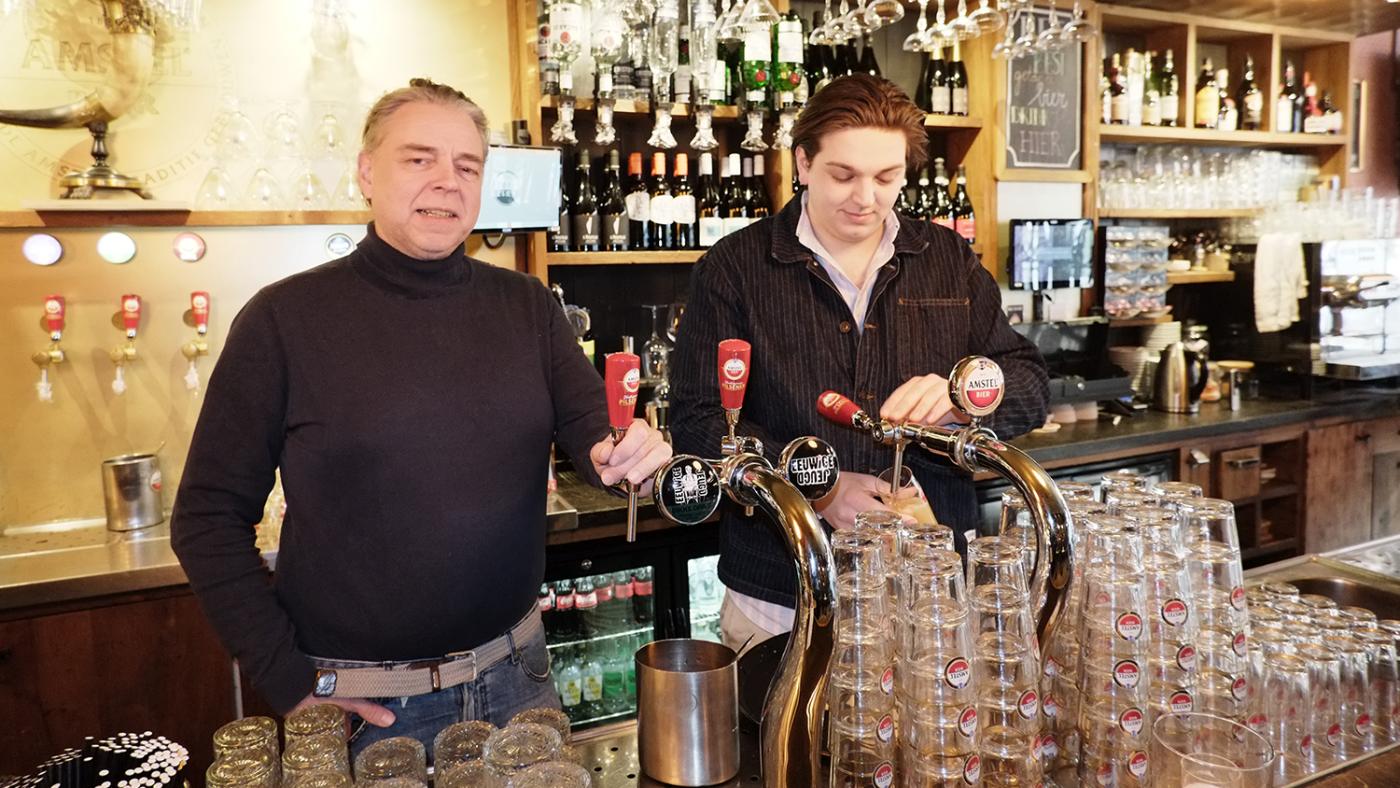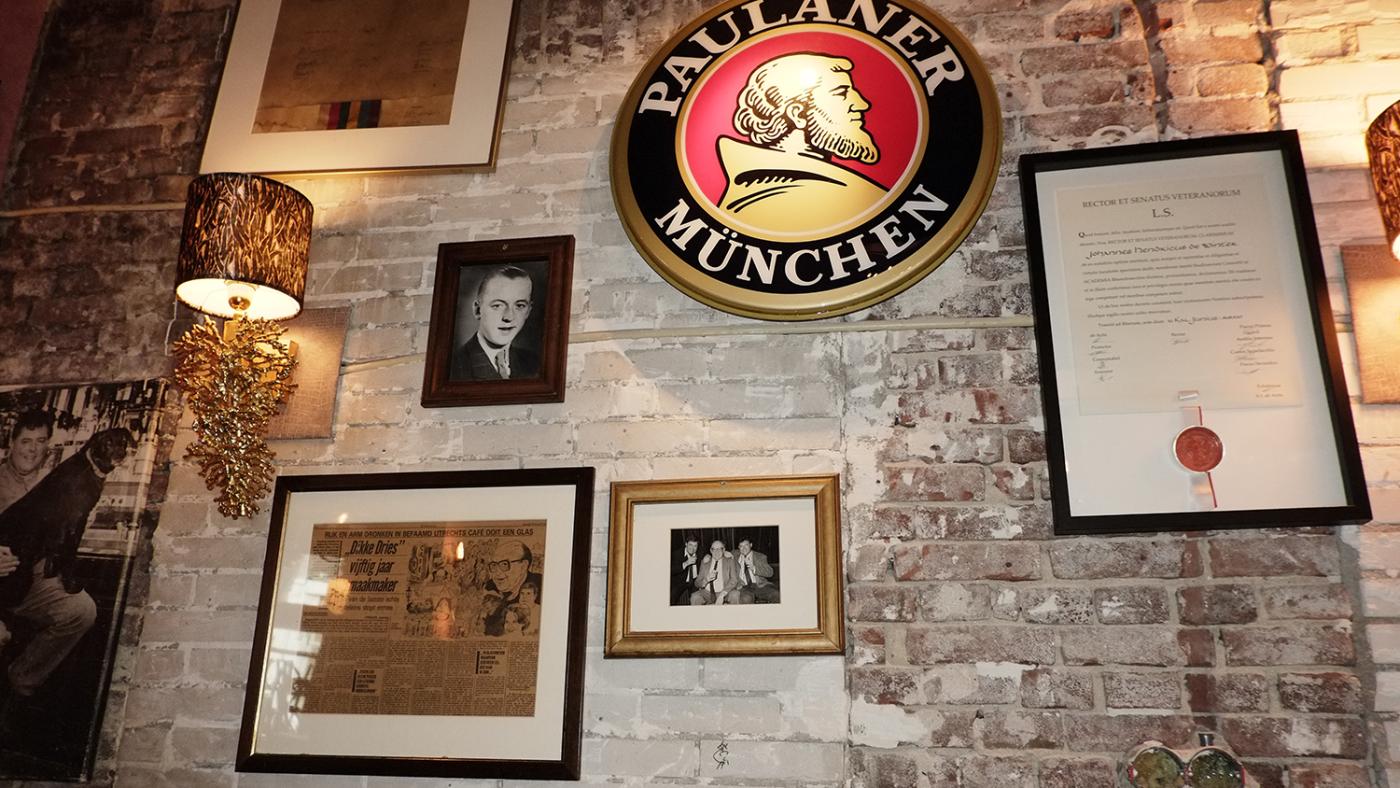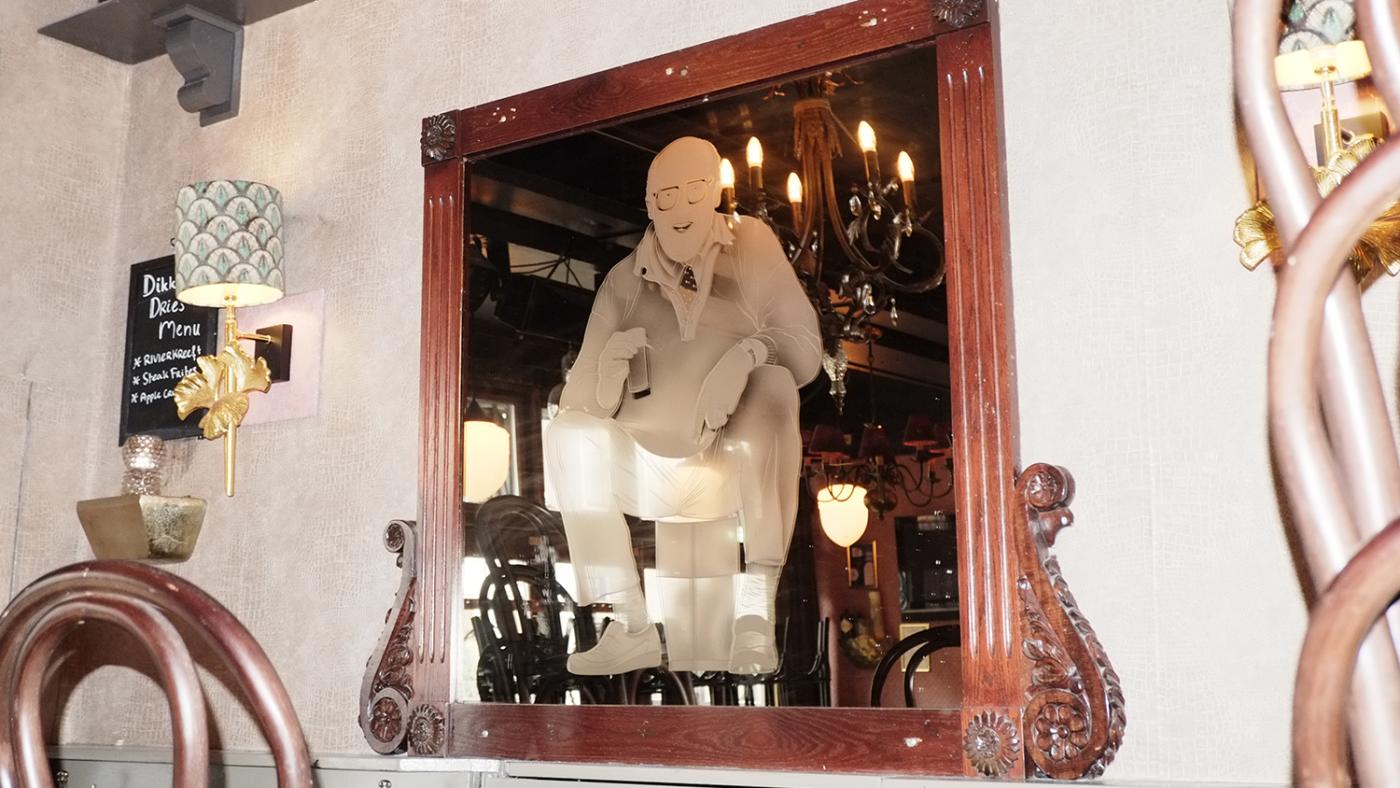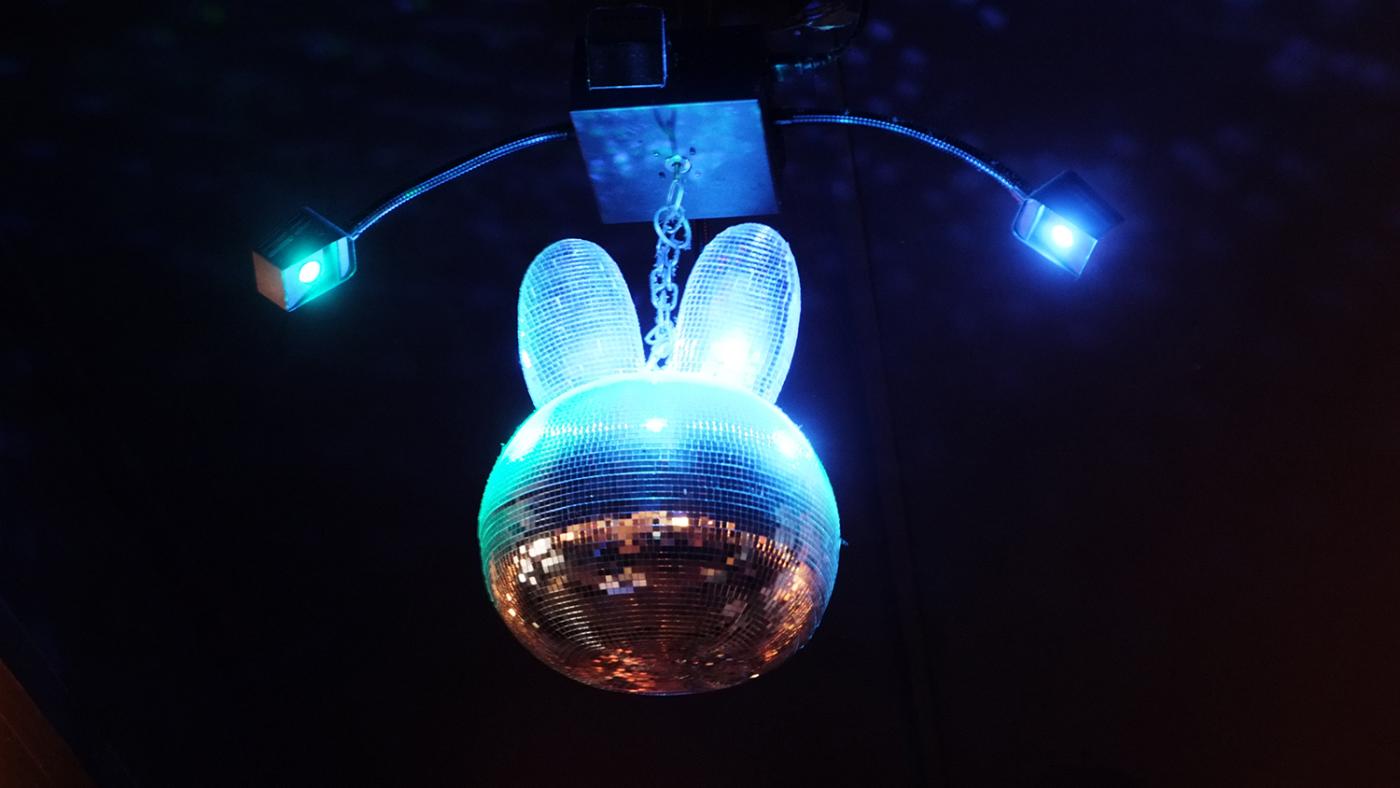Nieuwe Dikke Dries pub celebrates its 50th anniversary
‘Sometimes students disappear from our bar. Usually, they're having exams'

When I enter the café on Oudkerkhof, Jos is still deep in conversation. He has been Nieuwe Dikke's manager for 25 years. They will soon open a delicatessen and sandwich shop next to the café and seem to have their hands full. His son, Julius, is the fifth generation of De Winters to work in the business.
I take a look at the pictures and objects on the wall. A picture of Jos as a baby, an engraving of Grandpa Joop, yellowed newspaper clippings, photos of memorable events in the café, and the name tags of "golden guests" who supported the café during the pandemic. Above us, a disco ball in the shape of Miffy (Nijntje). "Shall I turn it on?" Julius suggests, and then coloured lights fill the room. They are not trying to be a stuffy café here, but it is not a tightly-organised party café either. It is somewhere in between.

Once Jos sits down with me, I start by asking him what kind of café this is. "We try to maintain a traditional pub vibe. Knowing the people there is the appeal of a café. It is a place where you can drop by to catch up with friends, family and classmates. Nothing has changed in that respect, but we try to move with the times. When my parents started working here, they opened the pub at four in the afternoon and offered bitterballen and coffee from the pot. Now we have a modern kitchen and an espresso machine. We serve lunch, dinner and drinks. We also have several dance evenings a week. So, things have changed."

A real student café
I ask if Dries is a student café. Julius: "Many students come here, so in that sense, it is a student café, but all kinds of people come here too." Jos: "Sometimes all customers are students, but that only happens on Tuesdays and Wednesdays. There are days when we don't see any students around. That's usually when they are having exams."
Jos thinks it's a lot of fun to have so many students as customers. "They can be a pain in the neck sometimes, but we always manage to solve those issues. It is a very loyal audience. The nice thing about it is that I have been working here for 40 years and many people who were regulars then still come here every now and then."
When asked why there are two pubs named Dikke Driesen, I am told a bit of the family history. Jos: "My great-grandfather's name was Dries and he was pretty fat. Everyone had a nickname in Wijk C, so he was always called him Dikke Dries (fat Dries). When he started a pub in 1937, he named it after himself. The pub was quite small, so only three families could eat there at a time.
"The whole neighbourhood was up for demolition because Hoog Catharijne and the station area would become even bigger. People protested against it, just like they are doing now with Amelisweerd. This ultimately allowed a small part of Wijk C to remain, including Dikke Dries, but the family had already chosen to open a pub in the city centre by then. That's why there are two Dikke Driesen: the Old, and the New."

Students used to come more often
Their relationship with students began before the Second World War, in the old (and, at the time, the only) Dikke Dries. Members of the USC fraternity were particularly fond of the pub. During the war, when most student associations were disbanded, Dries was one of the pubs where USC could continue to exist underground.
The bond between the pub and the fraternity has always remained strong, but Julius emphasises that students from all walks of life go to their pub: study associations, rugby clubs, Veritas and Unitas, to name but a few. Julius: "Recently, we started 'Ladies' Sorority Tuesday’ for the independent sororities that have emerged in recent years."
I then ask Jos if the students who come here have changed over the years. "There used to be students who came here three, four or even five times a week and we would think to ourselves: 'Man, do you even study?' Nowadays, studying has become much more of a priority, so pub life has declined somewhat. But, when students do come by, it's just as fun."

The not-so-nice side
Given the close relationship between the pub and USC, I ask the gentlemen what they think of the criticism against the fraternity these days. Jos is happy to stand up for his regular guests: "The press pays a lot of attention to what goes wrong, but student life is about much more than that and you don't hear enough about the nice things." Julius: "We disapprove of all the nonsense, of course, but we are not involved in that. Our pub is just about having a good time. If they get annoying, we throw them out and, the next time they come here, we give them a handshake and move on."
When I ask Julius and Jos if they have any amusing anecdotes to add to the story, Jos makes a slightly mischievous face. "There used to be a student house up here. Forty years ago, when my parents still worked here, they asked if they could have a Halloween party here, even though it wasn't celebrated in the Netherlands at all back then. The story goes that the students then stole a real human skeleton from the university's anatomy lab and hung it from the flagpole. People were a bit more relaxed about that sort of thing back in the day."
Jos only attended hospitality school for two weeks, but he greatly appreciates students. "Utrecht has become a very fun city because of students. Take a city without a university or college, the nightlife culture and outlook on life are so different. Everyone is sour and all they do is work. Here there is art and culture. Yes, sometimes students are a nuisance, but the city is bustling and bubbling. Students make a city like Utrecht so much more fun, you just have to put up with the inconvenience sometimes."